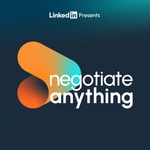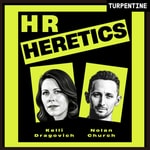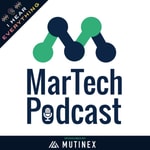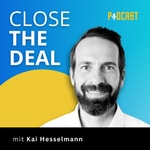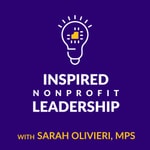Unlearn – Details, episodes & analysis
Podcast details
Technical and general information from the podcast's RSS feed.
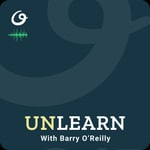
Unlearn
Barry O'Reilly
Frequency: 1 episode/14d. Total Eps: 151

Recent rankings
Latest chart positions across Apple Podcasts and Spotify rankings.
Apple Podcasts
🇬🇧 Great Britain - entrepreneurship
01/04/2025#100🇫🇷 France - entrepreneurship
11/02/2025#87
Spotify
No recent rankings available
Shared links between episodes and podcasts
Links found in episode descriptions and other podcasts that share them.
See all- https://www.bcg.com/
69 shares
- https://impact100global.org/
10 shares
- https://twitter.com/dastillman
6 shares
- https://twitter.com/amyjokim
4 shares
- https://twitter.com/mpoppendieck
3 shares
RSS feed quality and score
Technical evaluation of the podcast's RSS feed quality and structure.
See allScore global : 58%
Publication history
Monthly episode publishing history over the past years.
How the Attention Economy is Redefining Traditional Marketing with Emily Ross
Episode 147
mercredi 29 janvier 2025 • Duration 35:12
Welcome to the UNLEARN Podcast! Today, we’re joined by Emily Ross, co-author of Just Evil Enough and a leader in brand strategy and creativity. With a career spanning tech innovation, marketing, and even circus performance, Emily approaches challenges from unconventional angles.
As Director of Brand Strategy at X (formerly Twitter) for EMEA, Emily also serves as an Advisory Board Member at SXSW and GoGreen Routes, an EU funded, pan-European research project on nature-based connectedness, as Co-founder of Resonance Festival (Resonance-Lough Derg), and a mentor to startups across Europe.
In this episode, she shares her approach to subversive marketing, reframing obstacles as opportunities and using bold tactics to achieve extraordinary results. Drawing inspiration from disruptors like Tesla, Emily reveals how creativity and curiosity can transform business outcomes. Whether you’re looking to reimagine your marketing strategies or disrupt the status quo, Emily’s expertise is an invaluable guide.
Key Takeaways:
- Unconventional marketing tactics involve reframing challenges and using bold strategies like zero-day exploits to help brands stand out.
- The power of creativity lies in applying attention-grabbing skills across industries, as seen through lessons from a diverse career.
- Turning flaws into strengths, as seen with Tesla and Space Invaders, shows how weaknesses can become powerful advantages.
- Consistency over brilliance emphasizes that success stems from daily effort and experimentation, not rare moments of genius.
Additional Insights:
- The Recon Canvas Framework uncovers market opportunities and shows the need for constant adaptability as strategies evolve.
- Capturing attention in the digital age requires standout marketing in a noisy, distracted world.
- Subversive thinking from Just Evil Enough shows how breaking rules can drive business success.
Get ready for a fascinating conversation with Emily Ross on rethinking traditional approaches, embracing creativity, and crafting strategies that disrupt the status quo!
Episode Highlights:
00:37 - Introducing Emily Ross
"Emily is a powerhouse in brand strategy, creative leadership, and co-author of Just Evil Enough. She’s reshaping how global brands stand out in noisy markets."
03:15 - Lessons from the Circus The Power of Attention
"I spent years as a fire performer, and it taught me that attention is a superpower. Learning to capture and hold attention is a skill every marketer needs."
05:14 - Subversive Marketing Tactics Explained
"Subversive marketing is about being bold, counterintuitive, and creative. It’s not growth hacking, it’s about playing the long game to stay ahead."
09:47 - Turning Bugs Into Features
"The famous Space Invaders bug is a perfect example of how flaws can create differentiation. As the game progressed, it got faster, making it more exciting."
15:10 - The Product-Market Fit...
How Product Managers Can Avoid Startup Failures and Drive Growth with John Cutler
Episode 146
mercredi 15 janvier 2025 • Duration 47:59
Welcome to the UNLEARN Podcast! Today, we’re joined by a thought leader and prolific voice in product management and organizational design, John Cutler. With a unique ability to navigate the “beautiful mess” of product development, John has spent his career exploring the complex overlaps of product, UX, and strategy.
Currently serving as Head of Product at Dotwork, John has previously held impactful roles such as Senior Director of Product Enablement at Toast and Product Evangelist at Amplitude, where he collaborated with thousands of product teams worldwide. His extensive experience spans B2B SaaS giants like Zendesk, Pendo, and AppFolio, as well as B2C, ad-tech, banking, and media industries.
Known for his insightful writing, John has authored nearly a thousand posts across various platforms, captivating readers with his deep understanding of product dynamics. Whether you’re seeking to level up your product thinking or gain practical tips on team enablement, John’s expertise offers unparalleled insights.
Key Takeaways:- The Beautiful Mess of Product Development: John’s approach to embracing complexity and context in product management to uncover innovative solutions.
- Unlearning and Growth: How letting go of rigid practices and adapting to change can unlock greater potential for teams and leaders.
- Writing as a Catalyst for learning: The power of consistent writing in shaping ideas, refining strategies, and building meaningful connections in the product community.
Additional Insights:
- Product Ecosystems in Flux: John talks about the dynamic nature of product management, highlighting how roles and best practices evolve with organizational and market shifts.
- Gamifying the Creative Process: Insights into how John uses tools and techniques to make writing, ideation, and problem-solving more engaging and productive.
- Rethinking Organizational Models: Exploring how companies can overcome challenges by reimagining structures, roles, and team dynamics for the modern era.
Get ready for a thought-provoking conversation with John Cutler on embracing complexity, fostering innovation, and mastering the art of unlearning!
Episode Highlights:00:36 - Episode Introduction
"I don't think we need a product manager for every 4 to 7 people. A software as a service company is much more of a service ecology."
01:15 - Introducing John Cutler
"John is one of the most insightful voices in product management, with a career spanning roles at Toast, Amplitude, and beyond."
03:46 - Discovering the "Beautiful Mess" of Product
"I’ve always been fascinated by the overlaps—where product, UX, and strategy collide in unpredictable ways."
11:27 - The Importance of Writing and Sharing Ideas
"I realized that writing wasn’t just for others—it was for me to process and refine my thinking."
15:59 - Finding Your Path Through Experimentation
"Everybody finds their way if you're willing to experiment and try. It's like software—the rate of iteration and the velocity of creation allow you to refine and...
Brand Safety & Platform Integrity at Spotify, TikTok and Google with from Dave Byrne
Episode 137
mercredi 28 août 2024 • Duration 48:05
Leadership in digital ecosystems requires a commitment to safety, trust, and ethical practices. Our guest today, Dave Byrne, founder of Trust Raise and a member of the Irish Digital Board, shares his journey from major tech giants to establishing a company dedicated to improving the integrity of digital platforms.
Dave Byrne has had an illustrious career, holding significant positions at Google, TikTok, and Spotify, where he spearheaded initiatives in brand safety and platform integrity. Now, as the founder of Trust Raise, he focuses on helping smaller companies navigate the complex landscape of digital safety. His work is driven by a deep commitment to creating ethical digital ecosystems that prioritize user needs and improve industry standards.
Host Barry O'Reilly invites Dave to discuss his career journey, the challenges of maintaining digital safety in a rapidly evolving industry, and the inspiration behind founding Trust raise. Dave shares valuable insights into the importance of adaptability, the evolving role of AI in digital safety, and how smaller companies can leverage his expertise to build safer digital platforms.
Key Takeaways:
- Resilience Through Failure: Early career setbacks can teach invaluable lessons about humility, perseverance, and the importance of continuous effort.
- Navigating Global Teams: Success in a fast-paced, global environment requires strong relationships, effective collaboration, and the ability to work across different time zones and cultures.
- Overcoming 'Golden Handcuffs': Comfort and security in large tech companies can sometimes hinder innovation. Pushing oneself out of the comfort zone is crucial for personal and professional growth.
- AI’s Potential in the Workplace: AI has the potential to enhance productivity and creativity. Those who leverage AI effectively will be at the forefront of industry innovation.
Additional Insights:
- Personal Reflections on Failure: Dave shared how an early career setback taught him invaluable lessons about resilience, humility, and the importance of continuous effort. This experience has profoundly influenced his work ethic and approach to leadership.
- AI's Potential to Revolutionize Work: Dave is optimistic about AI’s potential to enhance productivity and creativity. He believes that those who learn to leverage AI effectively will be at the forefront of the industry, taking on more dynamic roles and contributing to a more innovative tech landscape.
- The Importance of Ethical Tech Development: Throughout his career, Dave has been a strong advocate for ethical practices in tech. He stressed the need for companies, big and small, to prioritize user safety and trust, especially as technology continues to evolve rapidly.
Episode Highlights
- 00:00 - Download my free innovation map
- 00:39 - Introduction to Dave Byrne
- 03:00 - Dave’s unexpected start in his career and the impact of failure.
“This career in Google, TikTok, Spotify was not at all planned whatsoever... I actually ended up in Google because I lost a student union election in Trinity College."
- 07:35 - The rise of brand safety concerns and the 'Apocalypse.'
"The Adpocalypse... Brand safety became something that YouTube started caring about, Meta started caring about."
- 11:18 - Eroding Brand Perception
“ we're eroding brand perception of our customers. Again,...
Making Quality Decisions with Diana Kander
Episode 47
mercredi 20 janvier 2021 • Duration 35:12
Enabling Agility by Being Agile with Annette Gabriel
Episode 46
mercredi 6 janvier 2021 • Duration 36:39
Unlearn Season Two Finale: Ask Me Anything with Barry O’Reilly
Episode 45
mercredi 23 décembre 2020 • Duration 34:06
Helping Others Win with Steven Leist
Episode 44
mercredi 9 décembre 2020 • Duration 44:24
Building for Tomorrow with Sara Wood
Episode 43
mercredi 25 novembre 2020 • Duration 49:38
People-Centric, High Performance Culture with Rick Weil
Episode 42
mercredi 11 novembre 2020 • Duration 36:18
Product Management For Large Scale Innovation with Secil Tabli Watson
Episode 41
mercredi 28 octobre 2020 • Duration 48:45

